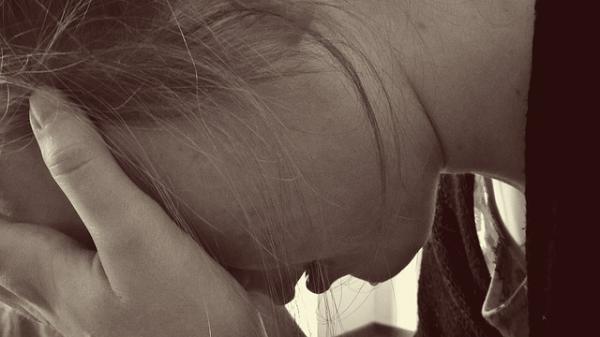Continuing your life normally after a divorce can take a while, varying from weeks to even years from one person to another. During that time, you will experience a variety of emotions and may be more vulnerable to developing depression, stress, and other physical or psychological conditions. Depression can be caused by dramatic life events such as a divorce. This type of depression is different from clinical depression, since in this case there is a situation that is the main cause of psychological discomfort, but its symptoms are similar in both types.
In some people, depression after a divorce can occur along with other behavioral changes such as avoidance of responsibility, friends and family, poor performance at work, etc. In this PsychologyFor article, we tell you how to get over a traumatic divorce
Symptoms of depression after a divorce
Many people associate sadness with depression , but sadness is only one of the various symptoms of depression. Other symptoms that are common in clinical and situational depression are:
- Loss of appetite
- Loss of interest in activities that were previously rewarding
- Sleep problems or insomnia
- Irritability
- Difficult to focus
- Hopelessness and pessimism
- Suicidal ideation and even suicide attempts
To consider that a person has depression, it is understood that they must present at least 5 of the above symptoms.(1).
How to overcome a divorce in men and women
Men and women experience depression differently. Depression in women manifests itself through sadness, guilt, self-esteem problems…
While depressive symptoms in men vary between irritability and difficulty sleeping, alcohol or drug abuse, etc. In general, women are more likely than men to experience depression after a breakup or after a divorce. However, men are less likely to talk openly about their depression.

Relationship between depression and a traumatic divorce
The risk of a couple divorcing is greater when one of them has a mental or psychological disorder, such as clinical depression. If both have a similar mental disorder, the risk of divorce decreases because they understand each other better.
When both in a relationship have a mental disorder, the risk of divorce is greater than in a couple in which neither of them has any psychological condition. Below, we offer you some self-help keys to know how to get over a traumatic divorce
How to get over an unwanted divorce or with children
Divorce affects not only the couple but also the children (if they exist), family, friends, etc. Having a good support network is very important to overcome this process in which you will have mixed feelings and spend a lot of energy trying to process them all, which makes you feel more tired than normal. That is why some tips that can help you overcome a traumatic divorce are:
To write a diary
Even if you have a good support network, it’s good write your feelings since it is a way of expressing them. You can also write letters that do not have to be sent, it is just a way to release those thoughts and feelings to process them more easily.
Daily physical exercise
When we don’t feel well, exercise can be very good medicine. Research shows that walking 20 to 40 minutes three times a week helps improve symptoms of sadness.
Healthy diet
You may feel like eating fast food or drinking more alcohol than usual, but you should try to eat healthy foods. A balance diet It will help you feel better.
Pamper yourself
Take care of yourself with a relaxing bath, reading a book you like, a movie, etc. If you have children, get organized so you can have time for yourself. Self-care is very important
Accept help
You may have less energy during the sad period. If people offer you help, accept it. There are times when we need support from others and that is not a bad thing. Knowing how to identify when we need help is very important.
Socialize
Being around people may be the last thing you want, but it can help you deal with your emotions. Spend time with your friends and loved ones, they will provide you with the support and care necessary to face this stage of your life.
Rest
Insomnia increases the risk of depression. If you’re having trouble falling asleep, adopting a nighttime routine can help calm your body and mind, whether it’s a cup of tea, a relaxing bath, or reading a book. Avoiding the use of electronic devices will help you sleep better and healthily. We recommend the following article on the causes and treatment of insomnia.

Other activities to overcome a traumatic divorce
In some cases the groups of support or self-help They help, while in those cases in which the sadness does not stop and even worsens, professional help, psychotherapy, may be necessary.
Support groups
They are groups made up of people who have gone through the same circumstances. Generally, these people are in different phases of this process, in this way the people who make up the group help each other to adjust to the moment in which they find themselves.
Psychotherapy
A psychotherapist is a trained and empathetic person who will actively listen to you, understanding how a divorce affects and changes people’s lives. It will provide you with a safe place in which you can open your heart and talk freely about your emotions and fears, especially those that are more private and that you don’t want to talk about at other times. It can also provide you with strategies to manage stress, grief, negative thoughts, etc.
This article is merely informative, at PsychologyFor we do not have the power to make a diagnosis or recommend a treatment. We invite you to go to a psychologist to treat your particular case.
If you want to read more articles similar to How to overcome traumatic divorce we recommend that you enter our Couples Therapy category.
- Diagnostic criteria of the DSM-V manual – Diagnostic and Statistical Manual of Mental Disorders: DSM-5. Pan-American Medical Editorial, 2014.








